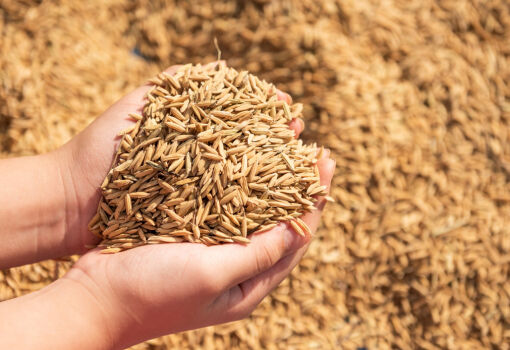
Eugen Salcucan, administrator of S.R.L.Salamer-Com, Chairman of the Patronage of the Meat Processing Industry of RM:
– The first thing to be noted is that the forced slaughter of at least 105 thousand pigs due to ASF is a widespread crisis, unfortunately setting back the dynamically developing pig breeding industry of the Republic of Moldova by years. Golden Piglet (farms in Roccani and Nisporeni) and Porco Bello are the leading enterprises in the sector, they raised more than 50% of the total number of pigs for the processing industry in RM. It can be said that minus the reproductive herd, the country’s market was deprived of about 30% of animals (for slaughter). For us, meat processors, this is a huge loss. And we do not understand on what basis the optimism of the statements are based, as if the loss of this part of the pig population in the Republic of Moldova could be recovered very quickly.
Sanitary measures for the preparation of farms for the resumption of animal breeding, reproduction of young animals or import of piglets – all this will require a lot of time, possibly years. And it is necessary to keep in mind that the whole Europe is fighting ASF, the corridors of movement of farm animals are limited and rapidly changing, quarantine “red zones” are everywhere. There are no guarantees that the situation will not worsen.
Currently, Moldovan meat processors are working on stocks, as well as on pork offered by those local farms that, given the high sanitary risks, have decided to get rid of their livestock as soon as possible. Although there is still a supply of raw materials, prices have already increased. After Easter, the commercial resources of pork will run out and there will be a shortage, which will only increase afterwards. Obviously, pork prices will continue to rise, both on the “freeze” market and on the market of raw materials for processing.
The impact of the duty-free Euroquota, an important mechanism for regulating the meat market of the Republic of Moldova in terms of volumes and prices, is rapidly weakening. For pork imports, this quota is 5.5 thousand tons per year. As of this week, only about 180 tons of the product remained to be imported into the country within the quota. Increasing the quota by several hundreds or even thousands of tons for the current year – while the market is guaranteed to miss about 17-20 thousand tons of Moldovan pork – will not solve the problem.
If Moldovan producers of sausages and other ready meat products cannot fulfill their contractual obligations in terms of quantity and assortment with retailers, they can easily make up the shortfall with supplies from the EU – Spain, Poland, Romania. Moreover, Moldova has a duty-free Euro quota for import of 1.7 thousand tons of ready meat products per year. Although earlier this quota was not selected in full, the dynamics of imports was positive. This year, it can be assumed that imports of ready meat products will intensify even more. Within the quota-2025, 1.3 thousand tons of finished meat products have already been selected. This means that domestic producers will lose a serious share of the Moldovan market. And we have no other market yet.
Taking into account all the above-mentioned, we propose the authorities to temporarily cancel customs duties on import of pork of certain commodity positions – frozen parts of carcasses: neck, beat, etc . These products are used for the production of sausages of the highest category and meat delicacies, and they practically do not affect the capacity of the “fresh” market, which domestic pig farms fill with chilled pork.
There won’t be huge imports anyway. None of the traders will risk investing too much money in raw materials with a relatively short shelf life and limited market demand. But such supplies will allow the meat processing industry to make up for the situational deficit, contain prices for finished products, and not significantly reduce production volumes and assortment.
Summarizing the above, I would like to emphasize: the meat processing industry in Moldova employs approximately 5 thousand people. These are mainly qualified specialists. They cannot be trained in one or two years. The option of technical downtime (as we observe in the oil and fat industry of the Republic of Moldova) or, moreover, large-scale layoffs of employees of meat processing plants is a very bad option for the country. In my humble opinion, in the current situation, it is more profitable for the authorities to sacrifice some customs revenues, but not to lose other taxes, salaries, food security and, finally, the peace of mind of citizens.
Rodion Melnyk, CEO of Carmez Processing S.R.L.:
– Our company has a long-term contract (with the price of pork fixed for a year) with one of the pig breeding companies affected by ASF. We must pay tribute to the courage and professionalism of these people: in extremely difficult circumstances they try to fulfill their obligations. At the moment, we need 90-100 tons of pork every week – we are getting it (supplies are coming from the second, unaffected by ASF, farm of our partner). However, the reserve of products there will soon run out.
Now this company imports live adult animals from the European Union for slaughter at its slaughterhouse. This is a complicated and risky process, given the tightening quarantine restrictions, changing supply corridors, etc., but so far it is going on (although it can be interrupted at any moment). The supply price of this pork is, of course, much higher. Thus, the average price for half carcasses in February was 53 lei/kg including VAT, while this week it is already about 64 lei/kg. For this company Carmez is the largest client from the meat processing sector, so we have a special attitude and an exclusive price. In turn, we understand the difficulties of our partner, empathize and are loyal to him. In the future, our partner intends to import piglets for breeding, but this is also a complex, risky and expensive process. According to our joint calculations, the price for pork obtained in this way will be around 73-75 lei/kg. This is a situation that may occur in a month or two.
In general, for small meat processing enterprises, the wholesale price for domestic pork (carcasses-half carcasses) from the domestic market, which is not bound by contracts, at around 75 lei/kg is already a reality today. After the Easter vacations, according to my forecast, it may rise to 80-85 lei/kg.
What does it mean for the consumer? Our company has raised the price only for fresh meat – parts of carcasses delivered to supermarkets. The price for sausages and ready meat products has not changed yet. However, as the stocks of raw materials run out and the structure of raw materials will be dominated by the products of imported animal cuts, the price of “fresh” pork may rise by 50-60%, and the price of sausage and other products containing pork – by 15-20%. With a very modest level of solvency of the average consumer in RM, this is painful. Prices for these products on supermarket shelves in Moldova will be 10-15% higher than inEU countries.
As a result, we will have a decrease in competitiveness compared to imported finished products, loss of market share, decrease in production. By how much? In the pessimistic scenario – by 30-40%. What consequences will this have for Carmez? We will have to optimize our staff with a heavy heart. Our company employs more than 500 people. And there are more than one or two similar enterprises in the industry. All of them will have problems.
There is an alternative that is acceptable to everyone. Our patronage of processors has proposed it to the authorities of the country, they should analyze the proposal and finally make a responsible decision. Time is running out.

